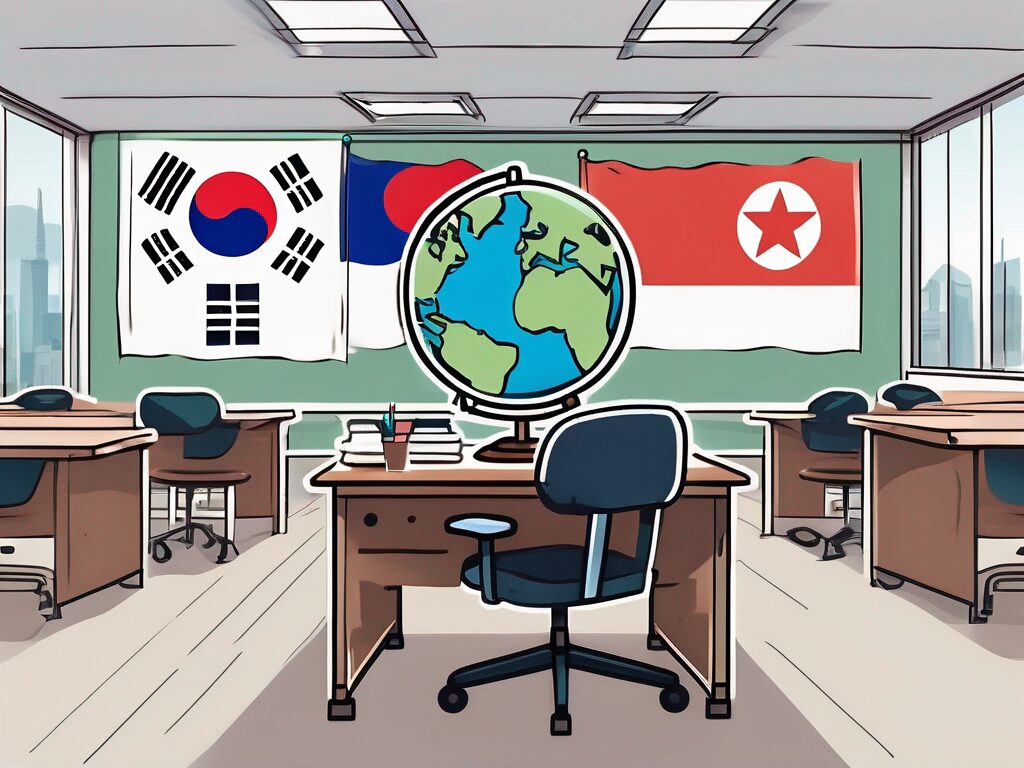South Korea, known as the Land of the Morning Calm, has become a popular destination for international teachers in recent years. With its rich culture, technological advancements, and high demand for English language instruction, it’s no surprise that many are drawn to this East Asian nation. But, one of the most frequently asked questions is, “What is the average salary for international teachers in South Korea?”
In this blog post, we’ll delve into the nitty-gritty of salaries for international teachers in South Korea. We’ll look at factors that influence pay, compare salaries across different teaching positions, and even touch on the cost of living in South Korea. So, grab a cup of tea, sit back, and let’s get started.
Factors Influencing Salary
Teaching Position
The type of teaching position you hold can significantly influence your salary. For instance, public schools often have a set pay scale, while private schools and language institutes (hagwons) may offer higher salaries based on your qualifications and experience.
Generally, entry-level positions in public schools start at around 1.5 million KRW per month, while experienced teachers can earn up to 3 million KRW. On the other hand, hagwons tend to pay between 2 million and 2.5 million KRW for beginners, with potential earnings of up to 3.5 million KRW for seasoned teachers.
Qualifications and Experience
Just like in any profession, your qualifications and experience can play a significant role in determining your salary. Teachers with a bachelor’s degree in education or a related field, or those with a TEFL/TESOL certification, are likely to earn more than those without.
Similarly, teachers with several years of experience under their belt are often offered higher salaries compared to those just starting out. It’s not uncommon for experienced teachers to earn up to 30% more than their less experienced counterparts.
Comparing Salaries Across Different Teaching Positions
Public Schools
As mentioned earlier, public schools in South Korea typically have a set pay scale. The starting salary for a first-year teacher is usually around 1.5 million KRW per month. However, with each year of service, teachers can expect a slight increase in their salary.
It’s also worth noting that public schools often provide additional benefits such as housing allowance, paid holidays, and severance pay, which can significantly increase the overall compensation package.
Private Schools (Hagwons)
Private language institutes, or hagwons, are known for offering competitive salaries. A beginner teacher can expect to earn between 2 million and 2.5 million KRW per month, while experienced teachers can earn up to 3.5 million KRW.
However, it’s important to note that while the salaries may be higher, hagwons often require longer working hours compared to public schools. Additionally, the benefits package may not be as comprehensive.
University Positions
University teaching positions are highly sought after in South Korea. These positions often require a master’s degree or higher and several years of teaching experience. However, the pay is commensurate with the requirements, with salaries ranging from 2.5 million to 5 million KRW per month.
University positions also tend to offer generous benefits, including housing allowance, paid holidays, and research funding, making them an attractive option for many international teachers.
Cost of Living in South Korea
While salaries for international teachers in South Korea are generally attractive, it’s also important to consider the cost of living. South Korea is known for its high living standards, and while some things are relatively cheap, others can be quite expensive.
For instance, housing in major cities like Seoul can be quite pricey, while in smaller towns and rural areas, it’s significantly cheaper. Similarly, eating out at restaurants can be expensive, but local markets offer affordable fresh produce.
On average, a single person’s monthly costs, excluding rent, are around 1.1 million KRW. However, this can vary greatly depending on your lifestyle and spending habits.
Conclusion
In conclusion, the average salary for international teachers in South Korea can vary greatly depending on the teaching position, qualifications, experience, and location. However, with competitive salaries and a high standard of living, South Korea continues to be an attractive destination for teachers from around the globe.
Whether you’re a seasoned educator looking for a new adventure, or a fresh graduate seeking an exciting teaching opportunity, South Korea offers a rewarding and enriching experience. So, why not take the plunge and embark on your South Korean teaching journey today?
Enhance Your Teaching Career in South Korea with IPGCE
Ready to elevate your teaching credentials and secure your dream job in South Korea? IPGCE is your gateway to overcoming qualification barriers, advancing your career, and joining a vibrant professional community. Our International Postgraduate Certificate in Education is tailored for educators seeking to enhance their expertise and adaptability in global education systems. With a proven track record of increasing interview callbacks, promotion rates, and salary potential, the iPGCE is the perfect fit for ambitious teachers. Embrace the opportunity for professional development with our flexible online study options. Join the UK’s #1 Teacher Training Course and start your journey towards teaching excellence in South Korea today.

